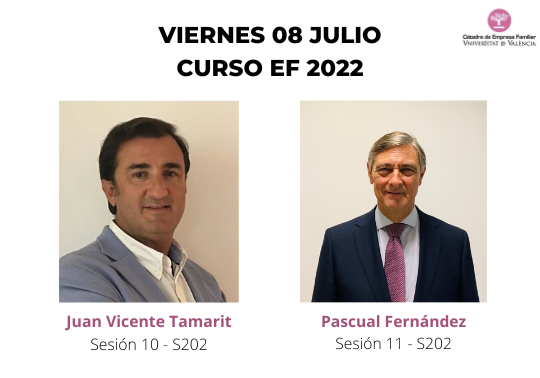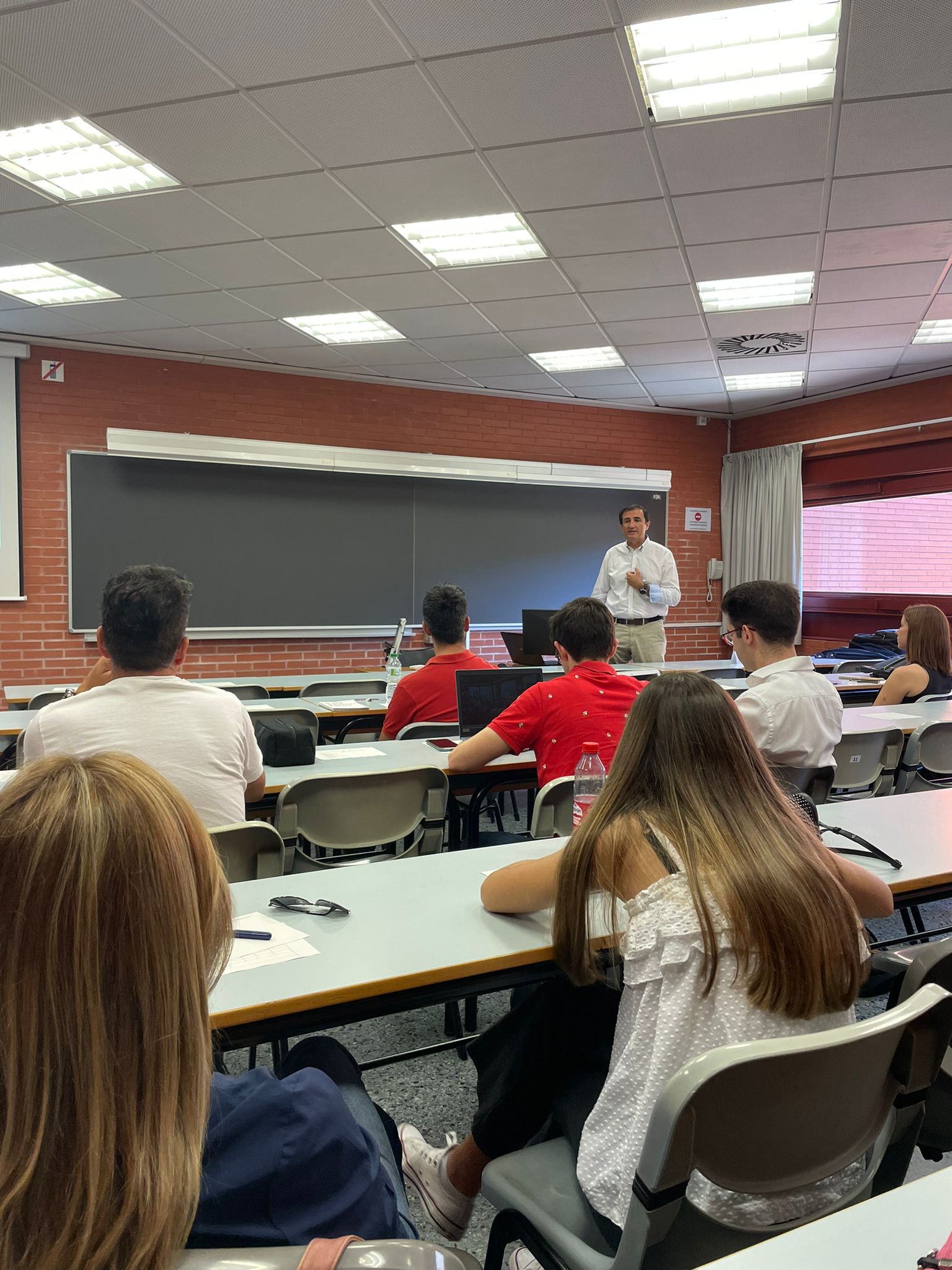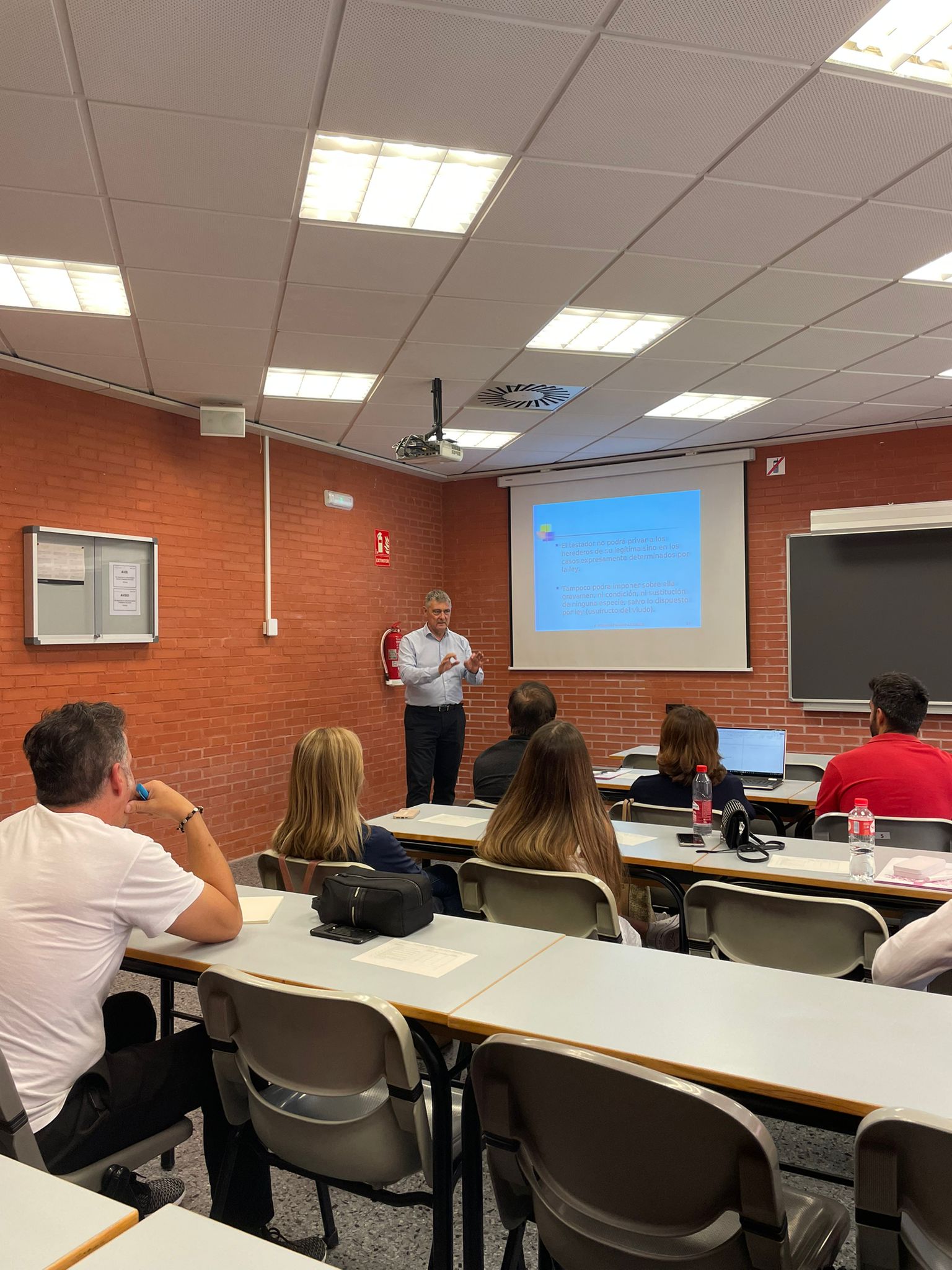
On July 8th the Family Business Chair (CEFUV) promoted by the Valencian Association of Entrepreneurs (AVE), the School of Entrepreneurs (EDEM), the Valencian Institute for the Study of Family Business (IVEFA), the Institute of Family Business (IEF) and the University of Valencia (UV), and sponsored by CaixaBank and Broseta, held sessions 10 and 11 of the Family Business Course: techniques for sustainability and competitiveness.
This sixth class included session 10 of the course "Career development in family businesses" with Juanvi Tamarit, MUSKETEERS PARTNERS, S.L.; and session 11 "Civil aspects of the family business" with Pascual Fernández, professor at the University of Valencia.
Session 10, given by Juanvi, began with a brief introduction by the teacher to the students about his professional history, his studies at ESIC and the positions and difficulties he had found in each of these positions within Grefusa and Alba, to finally work currently in a new company: Musketeers Partners, SL. The class continued with the definition of the family business, its characteristics and what were the strengths (values, closeness, flexibility) and weaknesses (difficulty in obtaining financing) within it.
The teacher then asked whether the family business is prepared to hire and retain external talent as CEO of the company, in this question the students had several different points of view. After this question, Juanvi showed a news item from years ago about the entry of Rani Aboukhair, former president of Santander, into the García Carrión family business, as opposed to another news item from months later where the former president left the company due to a culture clash.
“Family businesses are a great employment opportunity where the climate is close, and today they are the basis of the economy" - Juanvi Tamarit
With both news the professor wanted to show that it is very important to get to know the external person, to gain their trust and to convey the values of the company before appointing them as a manager. During the session, the main challenges of the family business were also discussed:
- The lack of shared vision and common values
- Difficulty in conveying the company's functional values to the employees
- It is important to learn to harmonise the emotional with the rational.
- Learning to trust the non-family manager and granting him/her sufficient autonomy
On this last point, he emphasised that for future managers (referring to the students), if they work in a family company, they must be clear that they do not belong to the family, as it is necessary to differentiate between company, family and ownership. In this respect, he pointed out that ownership has the obligation to challenge the management team in order to maintain enthusiasm, otherwise the best workers will end up leaving the company in search of motivation.
Finally, Juanvi discussed the concept of succession in the family business and defined it as a process to give stability to the company and ensure long-term sustainability. In conclusion, the professor defined the family business as PASSION, P (people), A (activity), S (strategy), S (simplicity), I (innovate), O (clear objectives), N (don't give up).

|

|
Session 11, led by Pascual Fernández, begins with a brief explanation of the circles of the family, property and company, and what are the links and positions that unite them; linking this information with Decree 17/1/2007, which defines what a family company is. The session continued with an explanation of the term inheritance, where in the family business there is a transfer of ownership: voluntary and legal. The teacher emphasised that the division of the inheritance is always 1/3, where the first 1/3 is obligatory for the descendants all equally, the second 1/3 is also for the descendants, but it does not have to be an equal distribution, and the last 1/3 is free.
Afterwards, the teacher showed the students the dangers of the family business:
- Preservation of the family business
- Continuity of the family business
- Control of the family business
- Property
During the session, the transmission of values, the associated problems, leadership, power struggles and the efficiency of agreements were discussed. In this last aspect, three different types of solutions are given: civil solution, commercial solution and family solution; for this last solution, Pascual gave the advice to grant marriage contracts. Subsequently, the statutory clauses were also dealt with: union agreements, acquisition rights, non-aggression agreements, arbitration commitments, privileged actions and causes of separation.
Finally, the professor differentiated the governing bodies between a family (family board and family council) and an entrepreneur, showing the need to draw up the family protocol as it serves as a contract and stressing that "with all the instruments we can prevent the company from dissolving".








